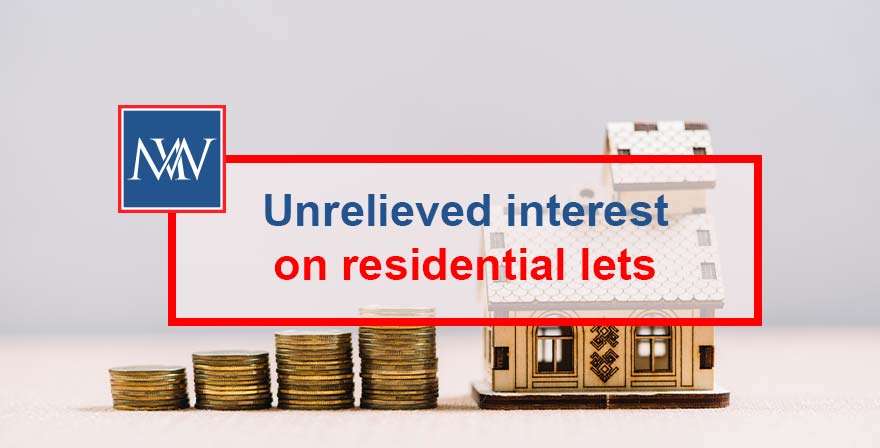
Unrelieved interest on residential lets
Unrelieved interest on residential lets
For 2020/21 and later tax years, unincorporated property businesses are only able to obtain relief for interest and finance costs on residential lets as a basic rate tax reduction; it is no longer possible to deduct any of the interest or finance costs to arrive at the taxable profit.
However, the permitted tax reduction is equal to 20% of the lower of the:
- finance costs;
- property profits; and
- the landlord’s adjusted total income exceeding the personal allowance.
This may mean that the landlord is unable to obtain relief as a tax reduction for the full amount of interest and finance costs incurred in the tax year, resulting in unrelieved interest costs.
Example
Ted has a number of residential buy-to-lets. The profit from his property rental business for 2020/21 (ignoring interest) is £18,000; he incurs interest costs of £8,000 in the year.
The personal allowance for 2020/21 is £12,500.
The tax reduction in respect of the interest costs is 20% of the lower of:
- finance costs (£8,000)
- property profits (£18,000)
- adjusted net income (£5,500, being £16,000 – £12,500).
Thus, the basic rate tax reduction is based on the landlord’s adjusted net income of £5,500, creating a tax reduction of £1,100 for 2020/21 (£5,500 @ 20%).
The tax computation for 2020/21 is as follows:
| £ | |
| Property profits | 18,000 |
| Less: personal allowance | (12,500) |
| 5,500 | |
| Tax @ 20% | 1,100 |
| Less: basic rate tax reduction (£3,500 @ 20%) | (1,100) |
| Tax payable | Nil |
The basic rate tax reduction reduces the tax payable to nil. However, relief is only obtained for £5,500 of the interest costs, leaving £2,500 (£8,000 – £2,500) unrelieved.
Carrying forward unrelieved interest costs
Where it is not possible to obtain relief in full for the interest costs (as will be the case when the property profits and/or the landlord’s taxable income after deducting personal allowances is less than the interest and finance costs), the unrelieved element is carried forward and is taken into account in calculating the basic rate tax reduction for the following year.
Example
In 2021/22, Ted has rental profits of £40,000 and interest and finance costs of £6,000. He also has unrelieved interest of £2,500 carried forward from 2020/21.
The personal allowance for 2021/22 is £12,570.
The tax reduction in respect of the interest costs is 20% of the lower of:
- finance costs (£8,500 (£6,000 + £2,500)
- property profits (£40,000)
- adjusted net income (£27,430, being £40,000 – £12,570).
The basic rate reduction is determined by the total interest available for relief, and is set at £1,700 (£8,500 @ 20%).
Ted’s tax computation for 2021/22 is as follows:
| £ | |
| Property profits | 40,000 |
| Less: personal allowance | (12,570) |
| 27,430 | |
| Tax @ 20% | 5,486 |
| Less: basic rate tax reduction (£8,500 @ 20%) | (1,700) |
| Tax payable | £3,786 |
The interest which could not be relieved in 2020/21 is carried forward and relieved in 2021/22.
For more information, Book a Free Consultation
Need Accountancy Support?
For information on bespoke training, or if you have any other questions for Makesworth Accountant, please fill in your details below
















 151
151